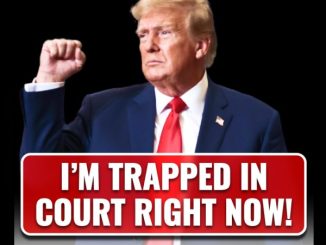The Importance of Jurisdiction in the Gary Hunt Case
Pursuant to Gary Hunt’s blog post, Judge Brown’s Jurisdiction Hearing by Gary Hunt, I would like to make the following comments:
“A universal principle as old as the law is that a proceedings of a court without jurisdiction are a nullity and its judgment therein without effect either on person or property.” Norwood v. Renfield, 34 C 329; Ex parte Giambonini, 49 P. 732.
“Jurisdiction is fundamental and a judgment rendered by a court that does not have jurisdiction to hear is void ab initio.” In Re Application of Wyatt, 300 P. 132; Re Cavitt, 118 P2d 846.
“Once jurisdiction is challenged, the court cannot proceed when it clearly appears that the court lacks jurisdiction, the court has no authority to reach merits, but, rather, should dismiss the action.” Melo v. US, 505 F2d 1026.
“The law requires proof of jurisdiction to appear on the record of the administrative agency and all administrative proceedings.” Hagans v. Lavine, 415 U. S. 533
“The law provides that once State and Federal Jurisdiction has been challenged, it must be proven.” Main v. Thiboutot, 100 S. Ct. 2502 (1980).
THE CART BEFORE THE HORSE: JURISDICTION MUST BE ESTABLISHED FIRST BEFORE PROCEEDING TO THE MERITS OF THE CASE
Hunt cites the reasoning of Anna Brown as she parrots what the government is telling her to justify jurisdiction while at the same time, proceeding to the merits of the case:
In particular, the Court finds the government has made a sufficient preliminary showing that evidence exists to support its theory that Hunt intentionally or knowingly aided and abetted a party to this litigation in the violation of the Protective Order (#382). That preliminary showing requires this Court to proceed to litigate the combined jurisdictional and merits-related issues. See Augustine v. United States, 704 F.2d 1074, 1077 (9th Cir. 1983)(When “the jurisdictional issue and the substantive issue are so intertwined that the question of jurisdiction is dependent on factual issues going to the merits, the jurisdictional determination should await a determination of the relevant facts on either a motion going to the merits or at trial.”). See also Young v. United States, 769 F.3d 1047, 1052-53 (9th Cir. 2014).
However, the cases cited by Brown are distinguishable from Hunt’s case. In Augustine, the issue is “subject matter jurisdiction” and the intertwined issues involve timeliness and other matters that do not relate to the Hunt case. In the Augustine case, personal jurisdiction was not in question because the parties resided within the physical jurisdiction of the court. Hunt resides in California and did not have sufficient contacts with Oregon, to fall within the physical jurisdiction of Brown.
Subject matter is very different than “in personam” jurisdiction where the court has jurisdiction over your body. Once personal jurisdiction has been established, the court becomes ruler over your body, having police powers to arrest you and detain you or to seize your property and garnish your wages. Without personal jurisdiction, the court has no teeth to enforce its subject matter decisions unless it takes the matter to a court that does have personal jurisdiction over a defendant.
Again, the Hunt case is very different than the case authorities as cited by the government, and parroted by Brown, keeping in mind:
“Once jurisdiction is challenged, the court cannot proceed when it clearly appears that the court lacks jurisdiction, the court has no authority to reach merits, but, rather, should dismiss the action.” Melo v. US, 505 F2d 1026.
WHY CONCEDING JURISDICTION TO THE FEDERAL COURT IS SO DANGEROUS
Hunt stated:
“If I were to win at the jurisdiction hearing, then there would be no show cause hearing. And, I was pretty sure that I would win at jurisdiction, meaning that the Freedom of the Press issue would not have its day in court.
On the other hand, if I lost the jurisdiction hearing, then the Freedom of the press aspect would see the light of day. Heck, I even contemplated losing the jurisdiction arguments, though it is nearly as important, so that the other, more important, show cause issue could be heard and ruled on.”
While Hunt’s motives are commendable, that is, his desire to challenge the issue of Freedom of Press and to expose the government’s illegal and corrupt attitude towards Freedom of the Press, and to take the risk entailed in conceding jurisdiction under the intertwined argument, I argue that the jurisdictional risks are extreme:
- Anna Brown and her cohorts on the federal team (federal government, federal prosecutors, other federal judges, federal law enforcement) have already revealed their true colors, and those colors are nasty and ugly. In other words, she and her team are not to be trusted. Once personal jurisdiction is established, she has near absolute power over one’s person (one’s body). Courts view personal jurisdiction as a concept of power as the traditional norm. See Hazard, A General Theory of State-Court Jurisdiction, 1965 Sup. CT. REV. 241, 241.
- The reason there is an abundance of cases by parties challenging personal jurisdiction, is because the consequences are very severe to the person who loses the issue of personal jurisdiction. Once personal jurisdiction is established, it opens the door for the federal team (courts, prosecutors, law enforcement, prisons) to many options, options that are contained within the many volumes of statutes, codes and laws. Among the most dangerous of all the laws available to a tyrannical federal team, is the Bail Reform Act of 1984.
YOU CAN INDICT A HAM SANDWICH
Anna Brown has already dismissed the Hunt defense of no jurisdiction, as noted in her order (ECF #2095) and as acknowledged by Hunt in his blog. However, the jurisdiction to which Brown refers, is more related to subject matter as opposed to personal jurisdiction. Subject matter does not give the court power over his body and property. If Hunt fails to prevail through a subsequent challenge on appeal or a motion for reconsideration, then the following set of circumstances could hypothetically unfold:
- The federal team obtains an indictment from a mysterious grand jury, who meets secretly like a Star Chamber, and issues an indictment against Gary Hunt. If the Oregon federal team, under Brown’s leadership, obtains jurisdiction over Hunt’s body, then they can proceed to the next step which is to name him as an indicted co-conspirator. How is that even remotely possible?
- It has been said that a federal prosecutor can “indict a ham sandwich” This is based on Judge Wachtler’s, a New York Chief Justice, own experience where he claimed that prosecutors had so much unjust influence over Grand Juries that they could get them to indict anybody. Wachtler is not being far-fetched or fictitious, as his statement has withstood the test of time and the Grand Jury process under influence by the federal team, remains a mystery. That being the case, Gary Hunt is not exempt from being indicted for having been involved for a time in Oregon, on the Committee of Safety, and anything else, that would constitute frivolous reasons for indicting him. The fact is, they have that power to indict whomsoever they choose, as we saw with Jerry DeLemus who was not in Bunkerville the day of the standoff and never displayed any illegal behavior.
- Once indicted as a co-conspirator, the judge has near absolute power to imprison indicted defendants, claiming that the indictment is probable cause to be 1) a flight risk and 2) dangerous to society. Her mere declaration, with loosely identified evidence, is all that is necessary under the Bail Reform Act for loss of liberty and all the attendant horrors of prison life as we have seen with the Bundy et al defendants.
- Similar to Pete Santilli, a member of the press currently under indictment and federal prosecution, the strategy would be to remove the issue beyond freedom of the press and lump it into the category of unlawful actions against federal employees. By so doing, the federal team would have another shot at getting somebody convicted of their pet charges of conspiracy and impeding federal employees in Oregon, this time before another jury than the one who acquitted the first defendants.The ultimate goal would be to get somebody of Hunt’s caliber and effectiveness, out of circulation, marginalized and minimized. We have already heard from Prosecutor Myhre that the federal team has up to 5 years of pre-trial prison before it becomes offensive to the Speedy Trial provision of the Constitution.Five years in delaying the trial of Gary Hunt serves the federal team’s purposes very well.
- Even if the federal team chooses to limit the charges to civil contempt with a 60 day prison time, those 60 days are too much. The federal team are experts in manipulating the system to their advantage, finding ways to extend jail time or otherwise, make it so traumatizing as to suppress Hunt in the future.
- Personal jurisdiction means jurisdiction over one’s body and property. While the court still has to prove guilt, they have the discretion to arrest and detain, at their pleasure, pending the outcome of the trial. Moreover, they have a host of remedies available to them to freeze assets, put holds on bank accounts and other draconian measures that the federal team deems necessary prior to a trial decision. Such measures may also be part of the scheme to prevent flight risks.
- Whether in prison or supervised with ankle bracelets, the power over one’s body and one’s right to life, liberty and the pursuit of happiness is greatly curtailed and subject to abuse as we have seen with the Ammon Bundy torture and being subject to hundreds of sexually abusive strip/cavity searches.
If Hunt is able to defeat the federal team on the issue of jurisdiction regarding the cease and desist order, then the government may be less inclined to pursue jurisdiction over the broader issues of an indicted co-conspirator.
Better to prevail on the jurisdiction issue first and be free another day to fight the freedom of the press battle.







Gary is looking down the twin barrels of the government’s shotgun. It won’t deal fairly with him because it’s corrupt. It’s inadvisable to appeal to justice or decency in an entity where no justice exists. The best thing he could do is to comply with Judge Brown’s order to remove the material in question from his website and hand over the original documents that were leaked to him. His commentary on the raw discovery information will remain available for all to see at various other sites which have mirrored them, not to mention internet archives, and any additional material that might be leaked in the future, anonymously, of course, wouldn’t necessarily done with Gary’s involvement. Gary Hunt does more good for himself, the remnant of the free press that remains, and for liberty when he can act from home rather than from a prison cell.
I absolutely agree
Deep topics like this stress the need to learn to talk like adults. Freedom and Liberty are restricted by jurisdiction and the laws enforced therein…whether to a lesser or greater degree. Taken as wholes Freedom and Liberty are not 100% obtainable while jurisdiction can be claimed…it is a trade off to secure a civil process without privileged authority (the objective of an honest Republic).
When someone talks of Freedom and Liberty as objectives what can they mean? 1) That the laws within the jurisdiction are few, 2) That they are living in a state of Nature, or 3) They are anarchists. None of those are necessarily bad things nor imply a person is bad for believing that way.
Then what phrase would best describe a worthy objective which encompasses greater Freedom and Liberty within a jurisdiction with a civil process without privileged authority?
Myself, I have come to use the phrase “equitable allegiance”.